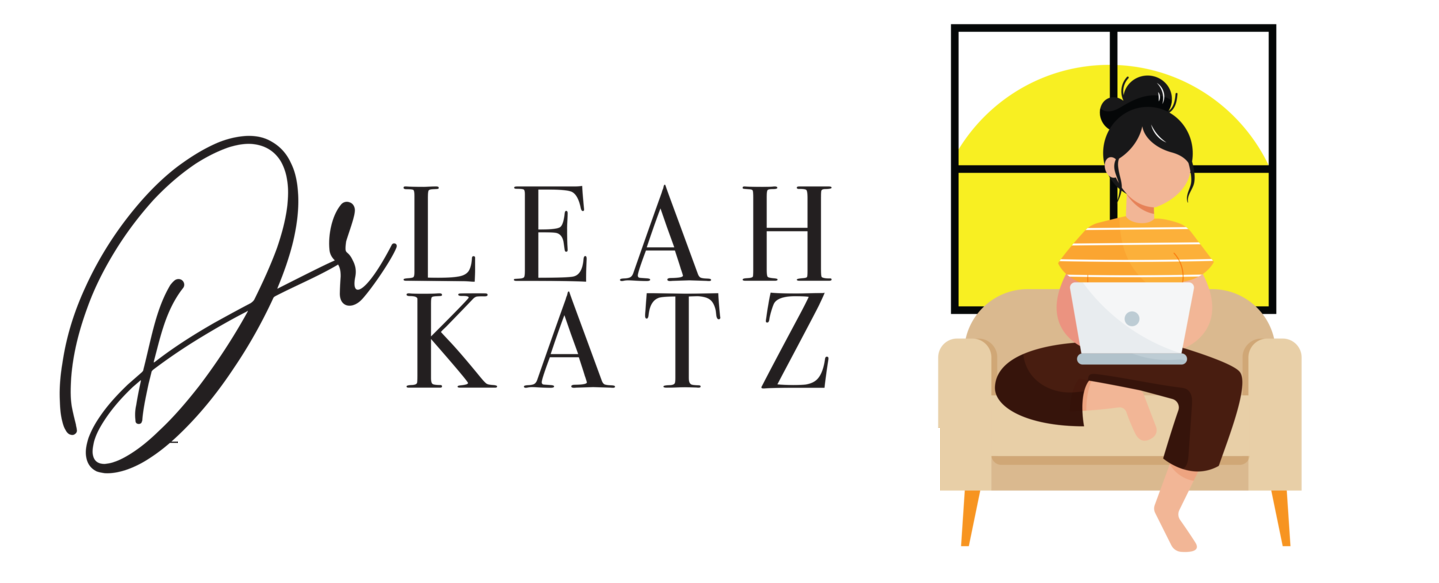How Do We Grow Through Challenges?
5 strategies to help you evolve and gain wisdom through COVID-19.
With so much uncertainty right now, one thing is for sure: I don’t want COVID-19 to be a thing of the past without positively being impacted by it. I want to feel like I was here for the coronavirus pandemic, and not just in body, but in presence. I want to know that I was awake as I surfed this wave, and maybe even developed some wisdom as a byproduct of going through something so tough, as we often do when challenged.

challenges can bre great gifts, when met with intention.Source: Pixabay / No Attribution Required
To develop insight, it helps to be awake for the breadth of the experience: the good, the bad, and the ugly. “Being awake” means creating awareness around our thoughts, emotions, and body sensations as we travel through the hardship. If there is grief, it is feeling the intricacies of this phenomenon. If there is worry and uncertainty, it is feeling them too, in all their complexity.
At a meditation retreat that I was on not that long ago, the leader quoted this amazing line from a short story written by James Joyce, an early 20th-century Irish author, entitled “A Painful Case.” The phrase goes as follows: “Mr. Duffy lived a short distance from his body.” Just let that sink in for a moment. Profound, right? I absolutely love this quote. It reflects how so many of us live through the stories our mind produces about what is happening, without really experiencing what is coming our way.
A benefit of living with awareness and not getting caught up in the narrative of our minds is that we often develop tremendously when we are here for what is happening. We learn a lot about what we are made of: our strength, grit, compassion, purpose, and resilience. We discover what values are actually important to us and which ones aren’t. We begin to understand what it means to "dig deep" within ourselves to weather the storm.
How many of you can look back in time and identify experiences you have had that you were not present for? Times in your life that you were so caught up in the cognitive experience of the anxiety and stress that you missed all the moments: the hard ones and the ones holding power and joy? I know I can.
Surprisingly, many of us coast by and pay little attention to what is happening, regardless if the situation is happy or painful. We often sleep through our own party (read: life). Sure, our bodies may be present and going through the motions, but our awareness is not there. Our mind is often busy with a story about the past, future, or ruminating in an unhelpful way about the present.
I remember a client describing to me her experience of getting a new puppy. She explained wistfully that those short puppy months went by quickly, and when her dog was a bit older, she regretted that she wasn’t more present for the puppy months. She was caught up in all the “doing” of his care, that she spent little time just “being:” with the stresses and the pleasures.
I’ve heard other stories of remorse from friends and clients in not having been present for important -albeit stressful- life happenings. For example, it’s common for new parents to describe ‘checking out’ for the newborn phase, or people zoning out during other difficult times such as when a loved one is sick. You know the phrase, “wake me up when this is over?” It’s like that.
While the temptations of taking a snooze when the going gets rough are certainly understandable and appealing on some level, when we do this there is often regret on the other side for not having really lived through the experience. Often, in these ‘big wave’ moments (times of intense feeling and emotion), there are many opportunities for connection, growth, and awe. Riding the big waves and not getting caught up in our mind’s narrative of them creates an opening to live a life that is rich with self-discovery.
We are all, right now, riding a very big wave. We are collectively experiencing an unprecedented time of grief, uncertainty, and fear. There is job loss, educational challenges, death, and also…what else? Can you find elements of the power of community, resilience, family, and love? You may be noticing a gamut of feelings in response to what is happening. Thus, this time holds a tremendous opportunity for change and growth.
With so much uncertainty right now, one thing is for sure: I don’t want COVID-19 to be a thing of the past without positively being impacted by it. I want to feel like I was here for the coronavirus pandemic, and not just in body, but in presence. I want to know that I was awake as I surfed this wave, and maybe even developed some wisdom as a byproduct of going through something so tough, as we often do when challenged.
challenges can bre great gifts, when met with intention.Source: Pixabay / No Attribution Required
To develop insight, it helps to be awake for the breadth of the experience: the good, the bad, and the ugly. “Being awake” means creating awareness around our thoughts, emotions, and body sensations as we travel through the hardship. If there is grief, it is feeling the intricacies of this phenomenon. If there is worry and uncertainty, it is feeling them too, in all their complexity.
At a meditation retreat that I was on not that long ago, the leader quoted this amazing line from a short story written by James Joyce, an early 20th-century Irish author, entitled “A Painful Case.” The phrase goes as follows: “Mr. Duffy lived a short distance from his body.” Just let that sink in for a moment. Profound, right? I absolutely love this quote. It reflects how so many of us live through the stories our mind produces about what is happening, without really experiencing what is coming our way.
A benefit of living with awareness and not getting caught up in the narrative of our minds is that we often develop tremendously when we are here for what is happening. We learn a lot about what we are made of: our strength, grit, compassion, purpose, and resilience. We discover what values are actually important to us and which ones aren’t. We begin to understand what it means to "dig deep" within ourselves to weather the storm.
How many of you can look back in time and identify experiences you have had that you were not present for? Times in your life that you were so caught up in the cognitive experience of the anxiety and stress that you missed all the moments: the hard ones and the ones holding power and joy? I know I can.
Surprisingly, many of us coast by and pay little attention to what is happening, regardless if the situation is happy or painful. We often sleep through our own party (read: life). Sure, our bodies may be present and going through the motions, but our awareness is not there. Our mind is often busy with a story about the past, future, or ruminating in an unhelpful way about the present.
I remember a client describing to me her experience of getting a new puppy. She explained wistfully that those short puppy months went by quickly, and when her dog was a bit older, she regretted that she wasn’t more present for the puppy months. She was caught up in all the “doing” of his care, that she spent little time just “being:” with the stresses and the pleasures.
I’ve heard other stories of remorse from friends and clients in not having been present for important -albeit stressful- life happenings. For example, it’s common for new parents to describe ‘checking out’ for the newborn phase, or people zoning out during other difficult times such as when a loved one is sick. You know the phrase, “wake me up when this is over?” It’s like that.
While the temptations of taking a snooze when the going gets rough are certainly understandable and appealing on some level, when we do this there is often regret on the other side for not having really lived through the experience. Often, in these ‘big wave’ moments (times of intense feeling and emotion), there are many opportunities for connection, growth, and awe. Riding the big waves and not getting caught up in our mind’s narrative of them creates an opening to live a life that is rich with self-discovery.
We are all, right now, riding a very big wave. We are collectively experiencing an unprecedented time of grief, uncertainty, and fear. There is job loss, educational challenges, death, and also…what else? Can you find elements of the power of community, resilience, family, and love? You may be noticing a gamut of feelings in response to what is happening. Thus, this time holds a tremendous opportunity for change and growth.

Source: Kanenori/Pixabay
How do you want to reflect on this pandemic when it’s over?
Living without regret is about being present and intentional: Have you met every day that you were gifted? And how did you meet that day? Were you responsive and in your body, opening yourself up to the lessons and wisdom that were presenting themselves to you? Or were you checked out of your body, stuck in your thoughts, and reactive or dissociative? Going through experiences in this mode is often where remorse stems from. The flip of that, undergoing hardship with a sense of alertness and spaciousness, often leads to positive change.
This doesn’t mean we need to come out of this experience with magical lessons, ‘aha moments’ (though it’s certainly nice if we do, at least a little bit), or finding silver linings (there is a time and a place for that, and there is a time for grief and mourning). All we’re aiming for is to know that we were there. We lived through Pandemic 2020 with our eyes wide open, enough so that this is something we can write heartfelt stories about when we are older, or tell anecdotes to our young children when they are grown.
As we are weathering this current worldwide tsunami, how can we achieve and ensure we emerge on the other side whole, intact, wiser and humbled? The following are five ideas:
1. Do daily check-ins with yourself. Ask yourself, where are my thoughts right now? What feelings am I having? How is my body feeling? You can try doing this multiple times a day, and at set times so you remember. For example, before you get out of bed you may want to check in with yourself, then again at lunchtime and again at bedtime before you go to sleep.
2. Notice the small moments of beauty and pleasure in any given moment. They are there, I guarantee you, even in the hard bursts. If you tune in, you will find them. You may even want to write them down so you have a log of all the beautiful moments that are happening in your life right now, alongside the stressful times and feelings.
3. Make the most of your down-time. Read that book you’ve had on your night table for months. Learn something new. By doing this, not only will you have tangible evidence that you grew during this experience, but you will be developing a sense of mastery. Building skill and knowledge in a specific area of interest is a wonderful way of coping with stress and uncertainty.
4. Keep a journal or a scrapbook of this time. At the end of the week, or at the end of the day, write down stories of your own strength. How you have adapted? How you have been flexible? How have you dealt with challenges that came up? What did you struggle with? How did you show up for yourself and your feelings? This can act as an archive of stories of your bravery as you lived through COVID-19. A client of mine told me she was going to start keeping a scrapbook of what it is like living right now- a time capsule of sorts. She is also crafting vision boards in her scrapbook as a way of maintaining the perspective that this will pass and all that she still has to look forward to.
5. Make memories. A teenage client of mine shared that she and her sibling had a mud fight with each other outside, for fun. We laughed at the silliness of this act, and reflected that if she wasn’t “stuck at home with nowhere to go and nothing to do” she would never have entertained such an activity, with her younger brother no less. But out of their shared boredom, this idea was born, and now they have a great memory that they will surely talk about as adults. Think about making memories, solo, or with your family. Be playful and silly with each other and yourself. Doing so will allow you to look upon this time with some wistful nostalgia when it’s all done.
When this uncertain and in many ways painful chapter is over, you will be the historian of your life during COVID-19. What can you do right now so that when it is a memory, you will recall the elements of pain and suffering, but also those of profundity and gratitude, knowing you were awake, alive, and positively changed by this episode of your life?
